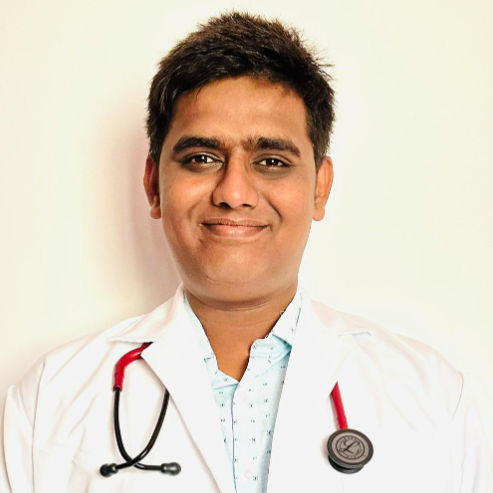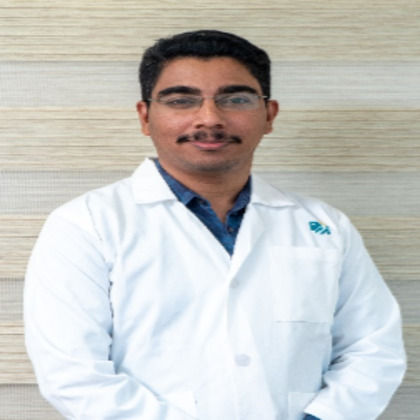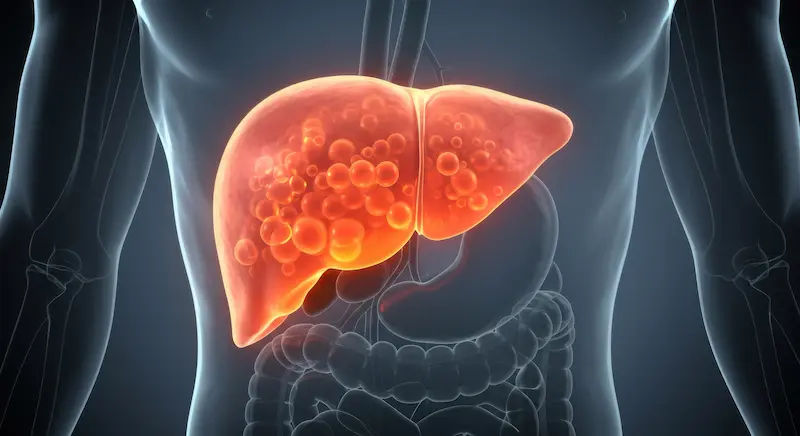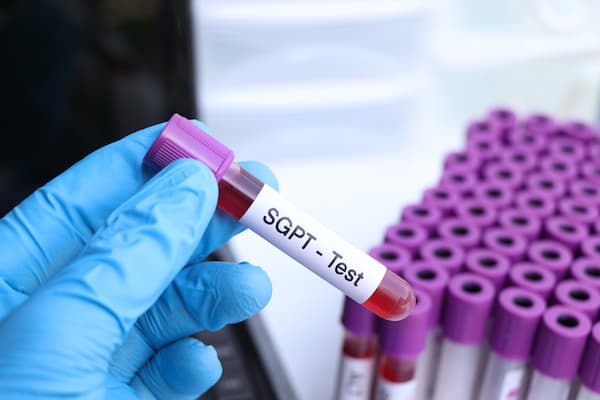Guide to Awareness About Liver Disease
Learn about liver disease, its types, early signs, prevention, and treatments. Discover lab interpretation tips, lifestyle changes, and community awareness strategies.

Written by Dr. Dhankecha Mayank Dineshbhai
Reviewed by Dr. J T Hema Pratima MBBS, Fellowship in Diabetes Mellitus
Last updated on 13th Jan, 2026

Introduction
Your liver is a quiet multitasker—filtering toxins, fuelling energy, aiding digestion, and regulating hundreds of processes daily. Yet liver disease often develops silently until complications arise. This guide helps you protect your liver, spot early warning signs, and access the right care at the right time. You will learn about the most common types of liver disease, warning symptoms, diagnostic approaches, practical prevention strategies, treatments, and lifestyle management. It also includes guidance on interpreting lab tests, changing habits effectively, and organising community awareness initiatives.
Why Liver Awareness Matters
See why awareness on liver disease matter:
The liver’s essential jobs in plain language
The liver performs more than 500 functions: processing nutrients, producing bile, storing vitamins and glycogen, filtering alcohol and medications, and balancing hormones and cholesterol. When the liver is inflamed or scarred, these processes are impaired, increasing risks for infections, bleeding, fluid retention, confusion, and cancer.
The global and local burden of liver disease
Globally, hundreds of millions live with chronic hepatitis B and C, while fatty liver disease affects roughly a quarter of
adults worldwide, driven by overweight, diabetes, and sedentary lifestyles. Cirrhosis and primary liver cancer rank
among leading causes of death in many regions, reflecting preventable and treatable conditions.
Awareness as prevention and early action
Knowing risk factors, recognising early symptoms, staying vaccinated against hepatitis A and B, and understanding that
hepatitis C is now curable can significantly alter health outcomes. Awareness also counters stigma—liver disease is not
only caused by alcohol; viral infections, genetics, medications, and metabolic conditions are common contributors.
Unique insight: Anchor awareness to routine milestones. For example, at each medication refill, ask: Have I checked
my liver enzymes this year? Am I up to date on hepatitis vaccines? Have my alcohol or dietary habits changed? Simple
habit-tied questions promote consistent liver health checks.
Types of Liver Disease You Should Know
Let’s have a look at the types of liver diseases:
- Metabolic dysfunction-associated fatty liver disease (MAFLD/NAFLD): Fat accumulation not caused by heavy
drinking, linked to insulin resistance, obesity, and type 2 diabetes. Weight reduction of 7–10% can improve liver fat and
inflammation. - Alcohol-related liver disease (ARLD): Ranges from fatty liver to alcoholic hepatitis and cirrhosis. Genetics, nutrition, and co-existing hepatitis influence risk; reducing or stopping alcohol can stabilise early disease.
- Viral hepatitis (A, B, C): Hepatitis A is acute and vaccine-preventable; hepatitis B can be chronic and is preventable by vaccination; hepatitis C is often chronic but curable with direct-acting antivirals.
- Autoimmune and cholestatic diseases: Autoimmune hepatitis (AIH) involves immune attack on the liver; primary biliary cholangitis (PBC) and primary sclerosing cholangitis (PSC) affect bile ducts, requiring immune-modulating or bile acid therapies.
- Genetic and rare conditions: Hemochromatosis (iron overload), Wilson’s disease (copper accumulation), alpha-1 antitrypsin deficiency, and others require targeted testing and interventions.
Unique insight: Combined causes are common. Mild alcohol intake plus MAFLD plus medications may all contribute; addressing all modifiable factors together improves outcomes.
Consult Top Specialists Here
Symptoms and Red Flags: When to Seek Help
Here are the symptoms:
Early, nonspecific signs
Fatigue, low appetite, mild right upper abdominal discomfort, bloating, itchy skin, or easy bruising.
Urgent symptoms
- Yellowing of eyes/skin (jaundice)
- Persistent abdominal swelling or sudden weight gain from fluid
- Vomiting blood or black stools
- Severe confusion or sleep-wake reversal
- Persistent fever with abdominal pain or weakness
- Worsening fatigue with marked appetite loss
General rule: If nonspecific symptoms persist beyond two weeks, consult a clinician. Severe symptoms require immediate care.
How long to wait before contacting a clinician
Persistent nonspecific symptoms: within two weeks.
Severe or acute symptoms: seek urgent evaluation immediately.
Telehealth vs in-person
Telehealth suits lab review, risk assessment, and medication follow-up. In-person care is needed for exams, imaging,
procedures, and urgent symptoms. Use Apollo 24|7 online consultations for initial review or book a physical visit as
advised.
Unique insight: Maintain a “symptom timeline” noting onset, triggers, and severity; this helps clinicians reach diagnosis
faster.
How Liver Disease Is Diagnosed?
Here’s how liver disease is diagnosed:
Blood tests (LFTs)
- ALT & AST: Liver cell injury; ALT is liver-specific.
- ALP & GGT: Bile duct issues or alcohol effects.
- Bilirubin: Impaired bile flow or liver injury.
- Albumin & INR/PT: Liver synthetic function; abnormal values indicate advanced disease.
Non-invasive staging
- FIB-4 and APRI scores: Estimate fibrosis risk.
- FibroScan: Measures liver stiffness; painless and effective.
Imaging and biopsy
- Ultrasound: Evaluates liver fat, texture, masses, portal hypertension, and HCC surveillance every six months in at-risk individuals.
- Biopsy: Used when diagnosis or staging is unclear.
Viral and autoimmune panels
- Hepatitis B (HBsAg, antibody) and hepatitis C (antibody + RNA).
- Autoimmune markers (ANA, ASMA) for AIH; AMA for PBC; MRCP for PSC if indicated.
Testing tip: Apollo 24|7 provides home collection for LFTs and hepatitis screening. Early testing is crucial for people with risk factors.
Unique insight: Request a “liver dashboard” summarising FIB-4, ALT/AST, platelets, and HCC surveillance status for a clear snapshot of liver health.
Prevention and Everyday Habits That Protect Your Liver
Here’s how preventive habits help protect your liver:
Vaccines and harm reduction
- Hepatitis A & B vaccination if not immune.
- Practice safe sex and avoid sharing needles or personal items.
Nutrition, weight management, and activity
- Mediterranean-style diet: vegetables, fruits, whole grains, lean proteins, nuts, olive oil.
- Gradual weight loss (0.5–1 kg/week), aiming for 7–10% body weight reduction.
- Exercise: 150–300 minutes/week moderate aerobic + 2 days resistance training.
Alcohol, medications, and supplements
- Guidelines: ≤1 drink/day women, ≤2 drinks/day men; alcohol-free days recommended.
- Review medications and supplements with a clinician; avoid hepatotoxic “natural” products.
Real-world habit change
- “If-then” planning: link healthy behaviours to existing routines.
- Shrink changes: replace sugary drinks with water, 10-minute post-meal walks, alcohol-free weekdays.
Unique insight: Coffee (2–3 cups/day) may reduce fibrosis and HCC risk if tolerated.
Treatment Paths and Living Well With Liver Disease
Let’s have a look at the treatments for liver disease:
Viral hepatitis
- Hepatitis C: Curable >95% with 8–12 weeks of direct-acting antivirals.
- Hepatitis B: Managed with antivirals; long-term monitoring required.
MAFLD/NAFLD and ARLD
- Lifestyle interventions: weight loss, exercise, alcohol reduction.
- Emerging therapies (e.g., GLP-1 agonists) may aid weight loss and liver parameters; discuss with a clinician.
- Abstinence from alcohol is essential for ARLD improvement; supportive care and counselling may be needed.
Autoimmune/cholestatic
- AIH: corticosteroids, immunosuppressants.
- PBC: ursodeoxycholic acid; PSC: manage complications, surveillance, and transplant evaluation when advanced.
Cirrhosis and complications
- Salt restriction, diuretics for ascites; beta-blockers/endoscopy for varices; lactulose/rifaximin for encephalopathy.
- HCC surveillance: ultrasound ± AFP every six months.
- Transplant evaluation for decompensated disease.
Mental health, stigma, and support
- Vaccinations (hepatitis, influenza, pneumococcal).
- Peer support and counselling help manage stigma and anxiety.
- Coordinate care across specialists; Apollo 24|7 consultations can assist in planning follow-up and referrals.
Unique insight: Create a “flare plan” detailing who to contact, where to go, and what to bring if symptoms worsen.
Consult Top Specialists Here
Building Community Awareness and Taking Action
Here’s how you can build community awareness:
Family/workplace awareness
- Check vaccination status, baseline LFTs, hepatitis C screening, alcohol and supplement use annually.
- Host brief “liver awareness huddles”: share facts, demonstrate LFT interpretation, suggest healthy snack swaps.
Partner locally
- Collaborate with clinics, pharmacies, NGOs for “Know Your Numbers” events with LFTs, hepatitis screening, and vaccination drives.
- Provide culturally tailored materials with visual guides.
30-day liver health challenge
- Week 1: Alcohol-free weekdays; add two portions of vegetables daily.
- Week 2: Walk 30 minutes/day; replace one refined carb with whole grain.
- Week 3: Schedule LFTs, hepatitis B/C screening, confirm vaccines.
- Week 4: Learn FIB-4 score, plan ongoing exercise, maintain a coffee-or-tea ritual.
Conclusion
Liver disease awareness enables prevention, early diagnosis, and effective treatment. By understanding liver functions, recognising early symptoms, and accessing timely testing and care, you can protect your health and that of your family. Vaccinations, moderation of alcohol, balanced nutrition, and regular activity are key pillars. Modern therapies offer real hope for viral hepatitis and structured cirrhosis care. Keep a liver dashboard, maintain follow-up, and consider home testing via Apollo 24|7. Awareness becomes action with practical steps—book a test, schedule a consult, or begin a liver health challenge today.
Consult Top Specialists Here
Consult Top Specialists Here

Dr. E Prabhakar Sastry
General Physician/ Internal Medicine Specialist
40 Years • MD(Internal Medicine)
Manikonda Jagir
Apollo Clinic, Manikonda, Manikonda Jagir
(150+ Patients)

Dr. Akshatha Manjunath
General Surgeon
8 Years • MBBS, MS
Bangalore
Apollo Clinic Bellandur, Bangalore

Dr. Pukhraj Singh Jeji
Gastroenterology/gi Medicine Specialist
13 Years • MBBS, MD ( Internal Medicine ), DM ( Gastroenterology ), Consultant - Gastroenterology
Bhubaneswar
Apollo Hospitals Old Sainik School Road, Bhubaneswar

Dr. Sushith C
General Physician
2 Years • MBBS
Bengaluru
PRESTIGE SHANTHINIKETAN - SOCIETY CLINIC, Bengaluru

Dr. Aswin S. Krishna
Hepatologist
10 Years • MBBS, MD (Internal Medicine,MMC), DM (Hepatology, MMC), PDF(Fellowship in Liver Transplanatation)
Chennai
Apollo Hospitals Greams Road, Chennai
(125+ Patients)
Consult Top Specialists Here

Dr. E Prabhakar Sastry
General Physician/ Internal Medicine Specialist
40 Years • MD(Internal Medicine)
Manikonda Jagir
Apollo Clinic, Manikonda, Manikonda Jagir
(150+ Patients)

Dr. Akshatha Manjunath
General Surgeon
8 Years • MBBS, MS
Bangalore
Apollo Clinic Bellandur, Bangalore

Dr. Pukhraj Singh Jeji
Gastroenterology/gi Medicine Specialist
13 Years • MBBS, MD ( Internal Medicine ), DM ( Gastroenterology ), Consultant - Gastroenterology
Bhubaneswar
Apollo Hospitals Old Sainik School Road, Bhubaneswar

Dr. Sushith C
General Physician
2 Years • MBBS
Bengaluru
PRESTIGE SHANTHINIKETAN - SOCIETY CLINIC, Bengaluru

Dr. Aswin S. Krishna
Hepatologist
10 Years • MBBS, MD (Internal Medicine,MMC), DM (Hepatology, MMC), PDF(Fellowship in Liver Transplanatation)
Chennai
Apollo Hospitals Greams Road, Chennai
(125+ Patients)
Consult Top Specialists Here

Dr. E Prabhakar Sastry
General Physician/ Internal Medicine Specialist
40 Years • MD(Internal Medicine)
Manikonda Jagir
Apollo Clinic, Manikonda, Manikonda Jagir
(150+ Patients)

Dr. Akshatha Manjunath
General Surgeon
8 Years • MBBS, MS
Bangalore
Apollo Clinic Bellandur, Bangalore

Dr. Pukhraj Singh Jeji
Gastroenterology/gi Medicine Specialist
13 Years • MBBS, MD ( Internal Medicine ), DM ( Gastroenterology ), Consultant - Gastroenterology
Bhubaneswar
Apollo Hospitals Old Sainik School Road, Bhubaneswar

Dr. Sushith C
General Physician
2 Years • MBBS
Bengaluru
PRESTIGE SHANTHINIKETAN - SOCIETY CLINIC, Bengaluru

Dr. Aswin S. Krishna
Hepatologist
10 Years • MBBS, MD (Internal Medicine,MMC), DM (Hepatology, MMC), PDF(Fellowship in Liver Transplanatation)
Chennai
Apollo Hospitals Greams Road, Chennai
(125+ Patients)
More articles from Fatty Liver
Frequently Asked Questions
1) What are the earliest signs of liver disease?
Fatigue, reduced appetite, mild right upper abdominal discomfort, dark urine, itchy skin. Consult a clinician if persistent >2 weeks.
2) How often should I get LFTs?
Annually if you have risk factors; more frequent if advised. Apollo 24|7 offers home collection.
3) Is hepatitis C curable?
Yes, oral antivirals in 8–12 weeks achieve cure rates >95%.
4) Am I at risk for alcohol-related liver disease if I drink socially?
Risk depends on amount, pattern, and personal metabolic factors. Combined with MAFLD, even modest intake may increase risk.
5) Do I need liver cancer (HCC) screening?
Cirrhotic or high-risk chronic hepatitis patients usually require ultrasound ± AFP every six months. Ask your clinician.


.webp)
_1.webp)
